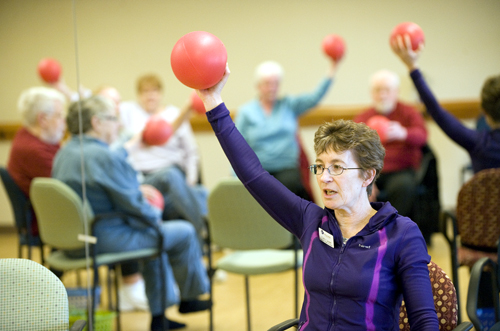Dr Atul Prasad
Parkinson’s disease (PD) is a progressively degenerative disorder of the central nervous system which basically affects the control of body movements. In other words it’s a type of disorder which affects several body movements, like, how the person moves, including how they speak and write. “Basically, Parkinson’s belong to a group of conditions called movement disorders which primarily affects body movements that have a neurological basis. It includes conditions such as cerebral palsy, ataxia, and Tourette syndrome.
Usually a male has a 50 per cent higher risk of developing Parkinson’s disease over his female counterpart. While the symptoms in PD develop gradually, in majority cases they start showing after the age of 60 with only 4 per cent of patients being below 50 years of age. “The likelihood of developing PD increases with age. It may start off with slight tremors in one hand. Also, people suffering from the disorder may experience stiffness and difficulty in carrying out movements as rapidly as before, uncontrolled balance, etc. It is normally because the muscles of a person with Parkinson’s become weaker and the individual may have an unusual stooping posture. Also, the symptoms may vary and affect an individual differently. As in some patients they may have pain and discomfort in an arm or leg, anxiety and depression, slowness of thinking and tiredness and disturbed sleep, etc. “Constipation and bladder problems is common, especially a tendency to pass water more frequently and with more urgency, may occur. Sexual difficulties may trouble some people. Speech and swallowing problems tend to become more of a problem later in the illness.
But what exactly causes Parkinson’s and is it genetic are the big questions. “At present there is no known cause for the disorder and therefore, the illness is termed “idiopathic”. It is not considered to be genetic though 10 per cent of cases have a familial incidence.
It is estimated that besides physical impact, approximately 90 per cent of people with Parkinson’s also suffer emotionally and psychologically. That’s more because of unpredictable nature of motor fluctuations. “Medically, a person with Parkinson’s has abnormally low dopamine levels. Dopamine-generating cells, known as dopaminergic neurons (types of nerve cells) in the substantia nigra part of the brain have died. Experts do not know why these cells die, but but when 60 to 80 percent of these cells are damaged-they do not produce enough dopamine to enable smooth movement; when this occurs the motor symptoms of PD (such as shaking and tremor) begin to develop.
Each person is affected differently and therefore the rate of progression too varies. “The illness progresses at a very slow rate and longevity of life are not shortened. Treatment alleviates symptoms though does not halt or slow the progression of the illness.
Parkinson’s disease is one such disorder which remains incurable, however drug therapy can alleviate symptoms. The main form of treatment is medication to restore the deficiency of dopamine. “Unfortunately, the way there’s no definite test to diagnose PD, there is no optimum drug treatment for the disease. Each person must be prescribed a specific regimen to suit his/her particular needs, both in terms of timing and dose. This will often involve a ‘cocktail’ of different drugs available to ensure the best possible effects for the patient. But it is important to note again that drug treatment does not cure Parkinson’s and so the disease continues to progress under treatment. As the disease progresses, the individual regimen needs to be reviewed and, when necessary, modified.
If a patient doesn’t respond to medication, a surgery called deep brain stimulation (DBS) can also help relieve symptoms in some cases. “Deep brain stimulation is usually recommended only for patients whose symptoms are not adequately controlled with medication. The procedure involves implantation of a battery-operated neurotransmitter, a device that is similar to a pacemaker. The neurotransmitter delivers electrical stimulation to areas of the brain that control movement and blocks the abnormal nerve signals that cause motor symptoms of PD such as tremor. Healthy brain tissue is not harmed during DBS.
Definitely, the diagnosis of Parkinson’s disease is often a shattering experience both for those diagnosed and their families. Therefore, it needs to be conveyed in a sensitive way so as to allow people time and space to come to terms with the diagnosis, and encourage them to seek further information and advice as they need it.
(The author is Director and Senior Consultant, DM (Neurology BLK Super Speciality Hospital)
Trending Now
E-Paper


